Thanks to the arrangement of the Swedish Embassy in Vietnam, reporters of the Industry and Trade Newspaper had the opportunity to talk with Ms. Elisabeth Dahlin - a Swedish official. She was the former Deputy Ambassador of Sweden to Vietnam from 1997 - 2001, and was also one of many Swedish youths who participated in movements to support the Vietnamese people in the war to protect the country.
She also witnessed the capital Stockholm explode with joy on April 30, 1975 when Vietnam won the great patriotic war.
The conversation with her is even more meaningful these days when the whole of Vietnam is eagerly awaiting activities to celebrate the 50th anniversary of the Liberation of the South and National Reunification Day.
The Vietnam War was a war of justice.
It is known that since 1972 when the US bombed Hanoi, you and your friends took strong actions to protest the war and support the Vietnamese people. Could you please share more about this?
Grandma Elisabeth Dahlin: 1972 was the peak year, but in fact the Swedish people's movement to support the Vietnamese people against the war had begun in 1967 - 1968. Trade unions, religious organizations, especially youth, united to express their support for the Vietnamese people and this movement became increasingly stronger in Swedish society.
Former Swedish Prime Minister Olof Palme, then Minister ofEducation , one of the strong advocates of the anti-war movement in Vietnam, took to the streets with the Vietnamese Ambassador to the Soviet Union and concurrently to Sweden to demonstrate solidarity with the Vietnamese people.
Ms. Elisabeth Dahlin - Former Deputy Ambassador of Sweden to Vietnam from 1997 - 2001. Photo: Hoang Hoa |
In particular, the youth spirit was so fierce and supportive that at that time there was a very “trendy” thing: holding the flag of the National Liberation Front of South Vietnam marching in the streets, shouting slogans, and at the same time raising funds to support the Vietnamese people. Everyone was very excited.
The movement gradually emerged and became stronger in Swedish society until 1972 when it reached its peak. The spirit of supporting the Vietnamese people at that time was expressed at the highest level.
I think the press played a very important role, because at that time the Swedish press reported and published stories about the war in Vietnam, and it was completely different from World War II - at that time the press was not as developed as in the 70s. All of this combined created a high consensus in Swedish society, wanting to express solidarity and support for the Vietnamese people.
At that time, the media was not as modern as it is now, so how did you learn about the brutality of the war in Vietnam? What was the motivation and thinking that helped you take strong actions to support the Vietnamese people in such a difficult context?
Grandma Elisabeth Dahlin: The press at that time was more developed and modern than in World War II, but it was still very basic. We were lucky to have some sources of information who were war correspondents. They were very brave Swedish journalists, who worked even in the most intense moments, with dangerous bullets and bombs, to report from the battlefield.
Furthermore, Sweden was one of the first Western countries to establish diplomatic relations with Vietnam in 1969. The Swedish Embassy was in Hanoi and quickly and promptly transmitted information about the war in Vietnam. This helped the Swedish people visualize and update the necessary information about current events in Vietnam, even at the most intense time when the US bombed Hanoi in 1972.
Along with that, some images from Western journalists working in Vietnam such as the photo "Napalm Girl" taken by journalist-photographer Nick Ut at the scene; or the image of Captain Bay Lem being shot right on the streets of Saigon without any form of trial caused a shock in Swedish society.
From then on, the Swedish people had the most specific and closest picture of the brutality of the war in Vietnam and realized the need to support the Vietnamese people in the war to defend the Fatherland.
Vietnam's "steel" spirit still boils even in peacetime
- It is known that she has been Deputy Ambassador of Sweden to Vietnam since 1995. From 1997 to 2001, how did you feel about Vietnam and its people? especially efforts to develop the economy and build a fair and humane society?
Grandma Elisabeth Dahlin: I think that period was very exciting, a lot of things happened at once and very quickly. The WTO was established, Vietnam officially became a member of ASEAN, Vietnam and the United States normalized diplomatic relations and Vietnamese people started speaking English. We saw the explosive growth of the Vietnamese economy and people.
When she was young, Elisabeth Dahlin participated in movements to support the Vietnamese people against the war. Photo provided by the character |
In terms of society, the Vietnamese people's love of learning is not only seen in the Temple of Literature but is shown everywhere. People work very hard and try to accumulate knowledge.
Vietnam at that time also had an industrial boom. This can be seen through the fact that Vietnam is one of the fastest integrating countries in terms of telecommunications speed and mobile phones. In some other fields such as information technology, Vietnam also developed rapidly. Up to now, it can be seen that Vietnam has been a complete success.
Today, with rapid development and complete infrastructure, we see that Vietnam has achieved positive results in social development, improvements not only in urban areas but also in rural areas, where people have electricity, clean water and easy access to basic services.
I remember the first time I came to Vietnam, the streets of Hanoi were still very dark because of the lack of electricity. The second time I came, things started to change and there were quite a few motorbikes on the streets and today when I came back, most of them were replaced by cars.
From the "transformation" of Vietnam today, what do you expect for the country and Vietnamese people in the future? What do you think if the current generation of Vietnamese people inherits and applies the strong fighting spirit of the past to develop the economy and society?
Grandma Elisabeth Dahlin: My hope for the future is that Vietnam will continue to move forward with its positive and strong development. This development will bring about equal and harmonious enjoyment for all.
Vietnam is at a very important threshold, able to have a stronger influence in all fields from economy, diplomacy, society...
As with any developing country, any middle-income country must surpass the threshold, or the middle-income trap, to develop. But importantly, when surpassing this threshold for economic development, it must ensure harmony, meaning that all groups in society benefit, including in both urban and rural areas.
The Vietnamese people have had a great spirit of solidarity and fighting in the war to protect the fatherland. If that spirit is applied and determined to develop the economy and the country, nothing can stop it.
Furthermore, Vietnam has great potential in terms of young people with a lot of knowledge and willingness to learn. This is an extremely rich resource, from which to form the basis for future development.
Thank you very much!
Ms. Elisabeth Dahlin was born on 28 March 1957 in Nedertorneå-Haparanda, is a Swedish official. Ms. Dahlin worked in the Swedish aid sector in Uong Bi, Quang Ninh province from 1981 to 1982. She served at the Swedish Embassy in Vietnam from 1997 to 2001. In December 1972, when the US bombed Hanoi, Sweden collected signatures demanding peace in Vietnam. She – then a student – and her sister walked through the snow knocking on doors to collect signatures, and 2.7 million people signed out of Sweden’s total population of about 8 million. |
Source: https://congthuong.vn/nguyen-pho-dai-su-thuy-dien-tai-viet-nam-chia-se-cau-chuyen-ung-ho-viet-nam-thong-nhat-dat-nuoc-385126.html


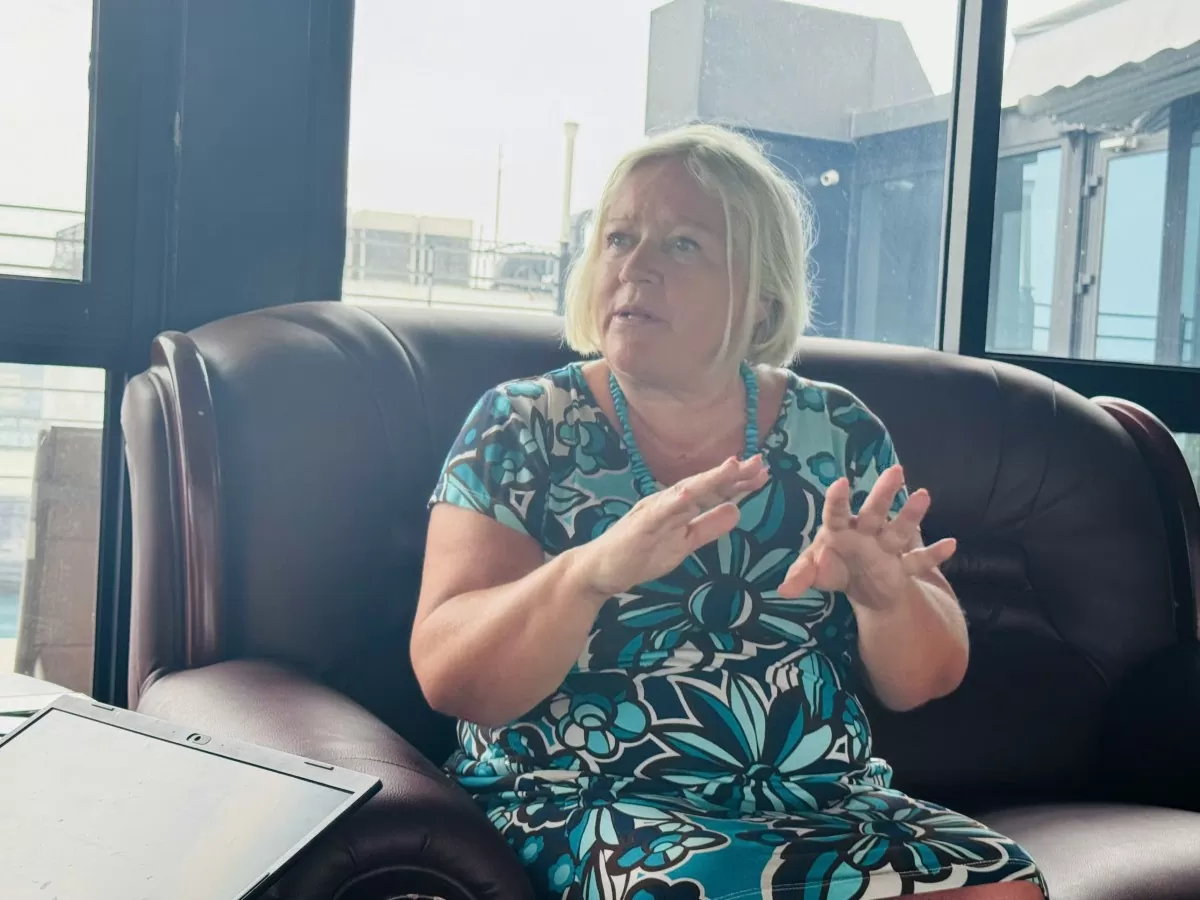
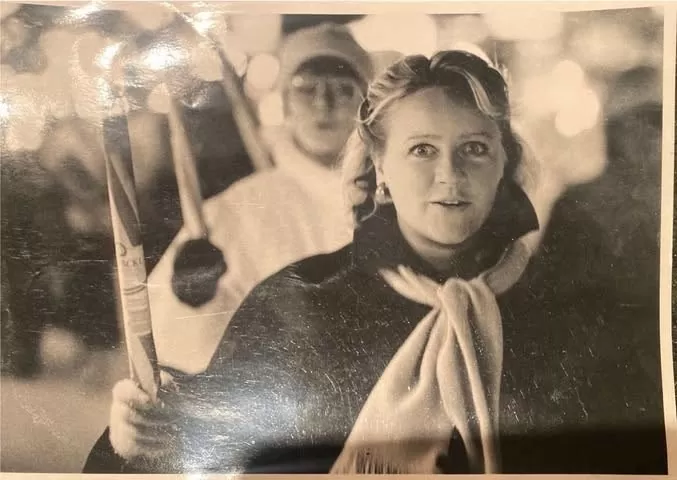
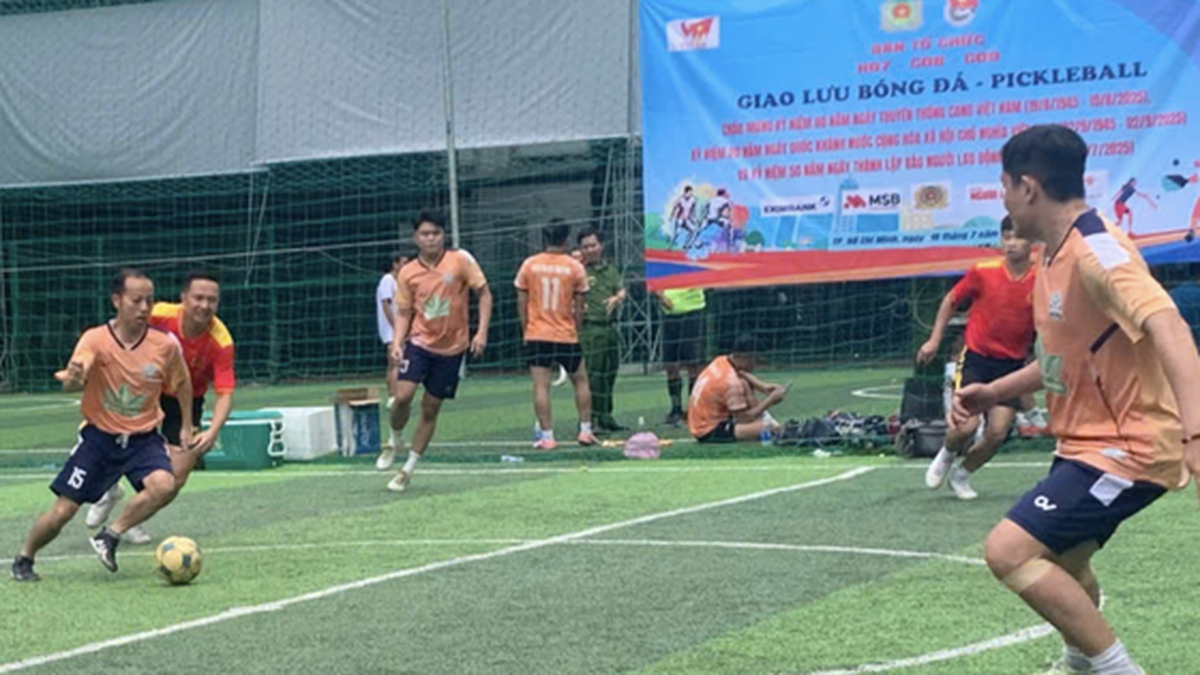

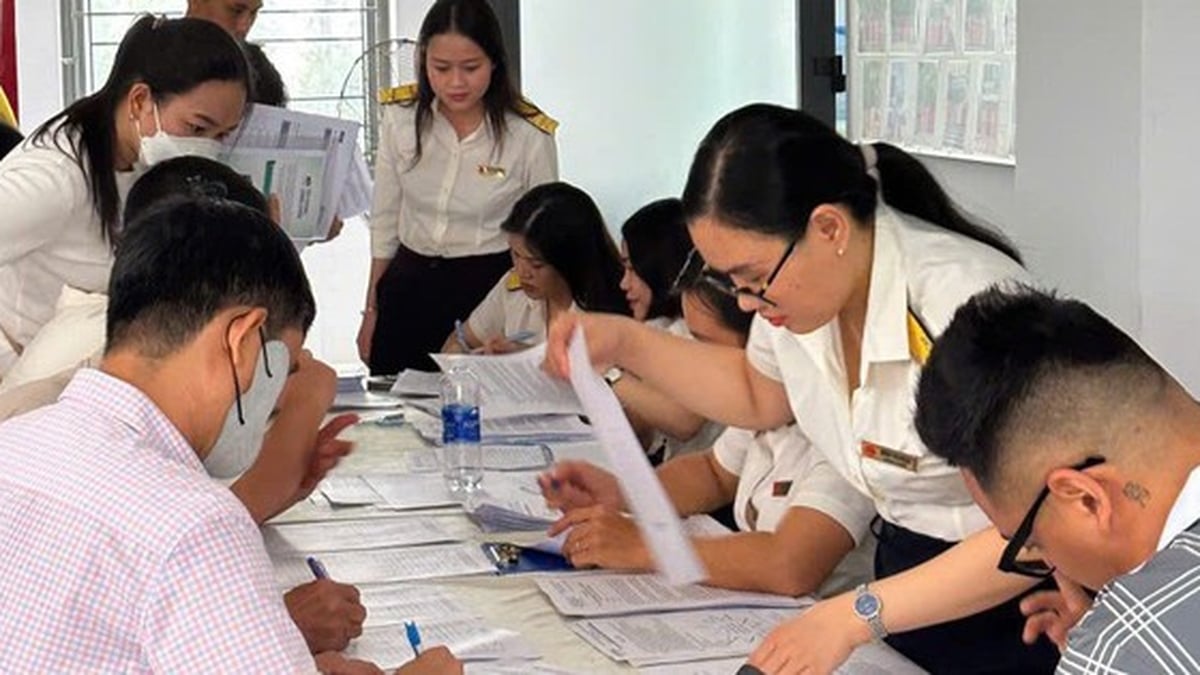

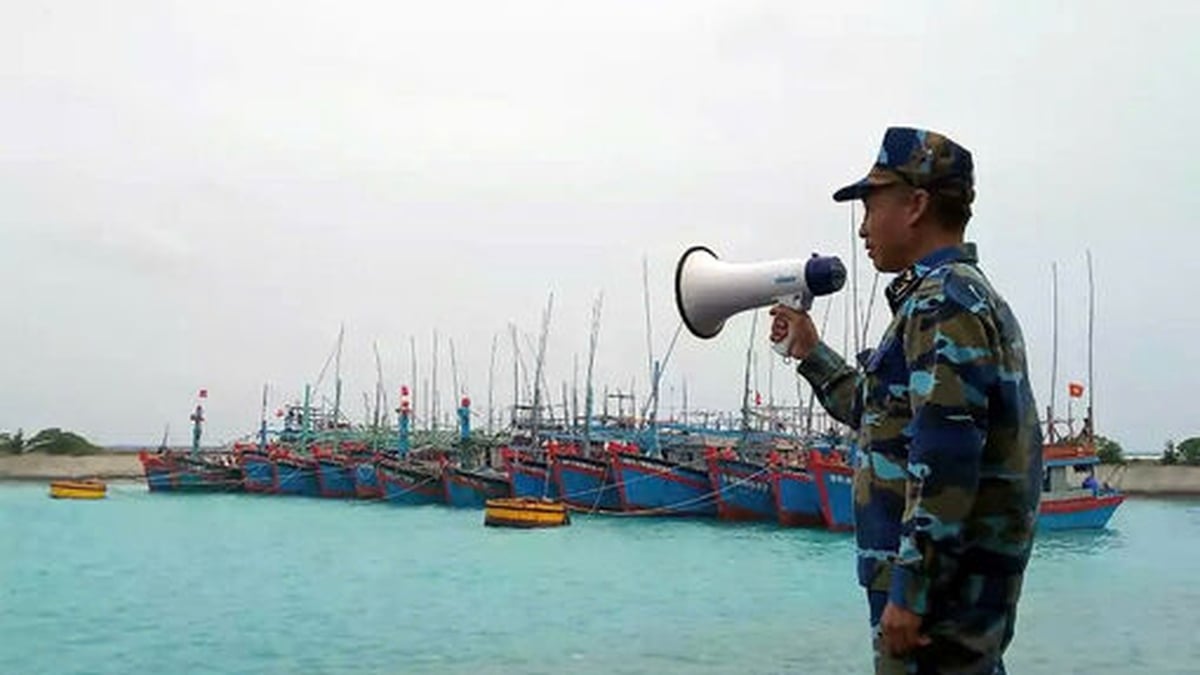



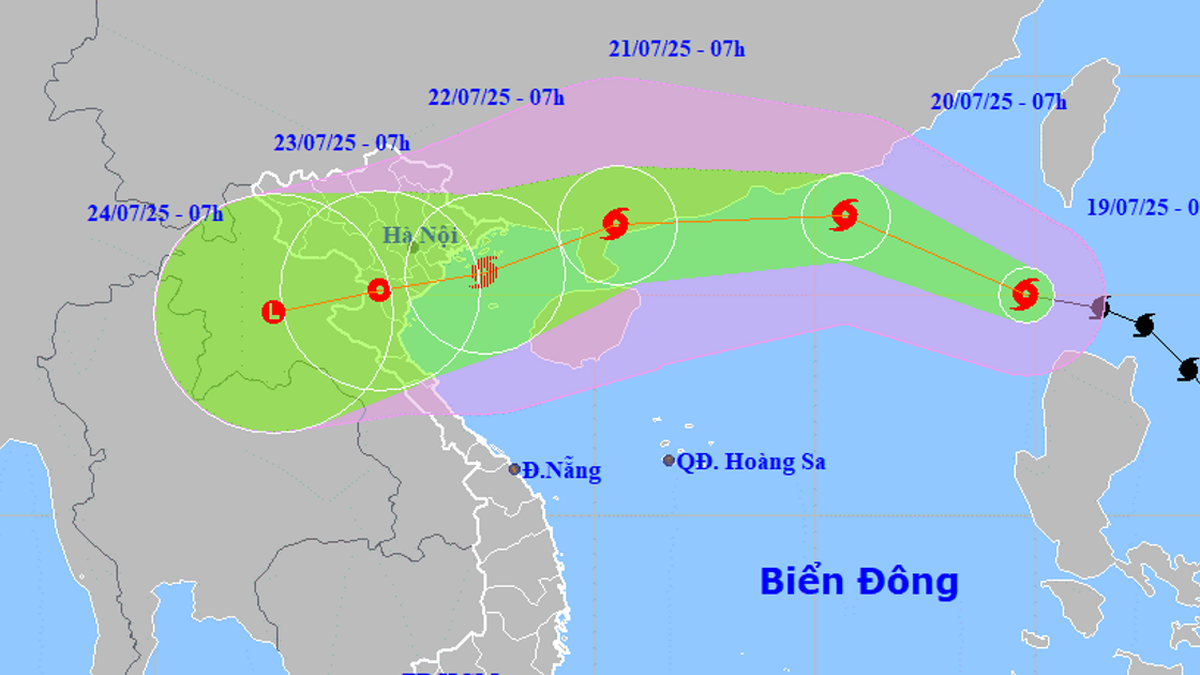
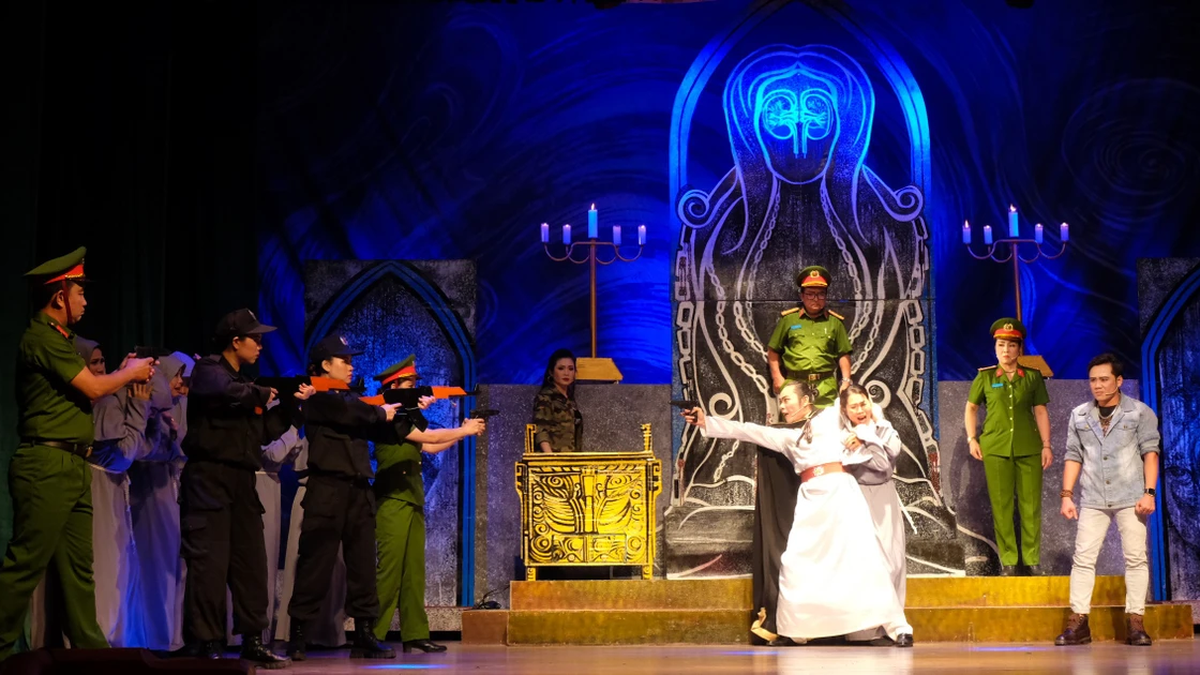
























































































Comment (0)